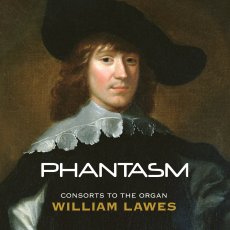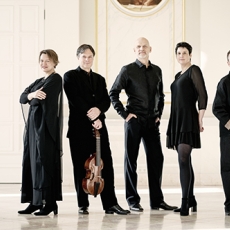Phantasm - Lawes: Consorts to the Organ - The Oxonian Review
Phantasm, the Consort-in-Residence at Magdalen College, launched their fourteenth recording on 6 June 2012. Founded by Oxford's own Laurence Dreyfus, this ensemble of viol players quickly acquired international fame after their debut CD was awarded a Gramophone Award in 1997. Fifteen years and twelve albums later, their decision to record William Lawes's ‘Consorts to the Organ' has given the group an excellent opportunity for further collaboration with Magdalen's organist and Informator Choristarum, Daniel Hyde. In their capacity as Consort-in-Residence at the college, the six musicians from Britain, America and Finland work with Hyde on a regular basis anyway, accompanying Magdalen Choir occasionally and promoting viol playing among the college's student community.
I am very glad to have been introduced to the music of William Lawes by Phantasm. The man himself seems to have had a rather fascinating life: baptised in 1602, Lawes became a musician to Charles I in his early thirties. Apparently, one of his favourite pastimes was ‘tavern-crawling' in the company of fellow musicians but, luckily, this did not keep him from fulfilling his vocation as a composer. Confident and talented, Lawes dissented from the musical customs of his time and challenged the listening habits of his contemporaries by employing unusual dissonances and harmonies.
Promoting the launch of their new CD, Phantasm gave two concerts together over the summer with Daniel Hyde and another guest musician, Elizabeth Kenny. The experience of listening to the same programme - music by Dowland and Lawes - in environments as different as Magdalen College Chapel in Oxford and Wigmore Hall in London has been most interesting. In Magdalen, the audience was seated on both sides of the nave, which created an intimate and inclusive atmosphere, and this sense was strengthened by the comparatively muffled and warm acoustics of the chapel. The famous Wigmore Hall, on the other hand, with its traditional theatre-like setting and its extraordinarily clear acoustics, felt a lot more anonymous. While one could hear more details of the music, I did not get the same sense of being surrounded by it and moved by every single wave of sound.
On both occasions I was particularly fascinated by the role assigned to the organ by Lawes amongst its keyless peers. How much discretion the composer demands of that outnumbered instrument! This comes across on the recording as much as it did during the concerts. But exactly because the organ tends to comply with one of the melodies played by the viols, its impact is all the more noticeable and dazzling whenever it does suddenly raise its voice in disagreement.
Both of Phantasm's concerts were preceded and repeatedly intermitted by the most meticulous tuning I have ever witnessed. On neither occasion did the audiences show signs of impatience (although there was some giggling and the exchange of meaningful glances): the process reflected the musicians' love and respect for the wonderful music they had chosen to interpret, and so did their playing. The sound engineers at Linn Records seem to have produced Phantasm's recording of the ‘Consorts to the Organ' with the same unflinching perfectionism.
Not being a musician myself, I could not possibly hope to compare Phantasm's approach to Lawes's work with that of other consorts in a meaningful way. But I can say with certainty that it has become an addiction for me to listen to the melancholy and wise voices with which Phantasm and Lawes make those beautiful old instruments speak. The dark and vibrant sound of the bass viols reminds me of an accordion playing a deep, stretched-out chord. In some yoga traditions, this kind of sound is used to support meditation, and the viols have an equally hypnotic effect. Note for note, the ‘Consorts to the Organ' conjure up memories and invite dreams: listening closely to the 23 pieces, one slips away into a phantasmal and lawless world, part music part fantasy. I keep them on repeat, in the vain hope of not having to leave it again.

